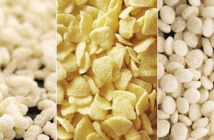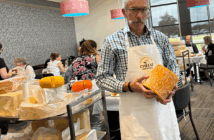
Finding a solution to our recycling problems that will suit the majority of stakeholders and benefit the environment is an unenviable task but one that is currently sitting with the Government.
The Government is currently considering whether a Container Return Scheme (CRS) for beverage containers is viable and what it might look like.
The Ministry for the Environment will provide advice to Minister David Parker and a series of Cabinet papers are to be expected on the topic over the next several months. If Minister Parker decides to go ahead with a CRS, there will be public consultation which is expected to happen later this year.
What is a Container Return Scheme?
A Container Return Scheme would involve beverage containers – such as plastic PET bottles – to carry a refundable deposit, for example 10 to 20 cents (or more). The deposit is redeemed when the container is returned to a collection depot or other drop-off point.
Overseas experience shows a refundable deposit puts the value back into recycling and results in a big increase in returned containers. A scheme could lift recovery and recycling rates for numbers of beverage containers in New Zealand from around 45% – 58% to 80%, or more.
So, what do the stakeholders think?
The Glass Packaging Forum
The Glass Packaging Forum is one of The Packaging Forum’s three accredited product stewardship schemes and has an alternative proposal that they trust will enhance glass recycling and support New Zealand’s ambition of a zero-waste society.
This GPF proposal aims to bring all container glass importers, producers and retailers onboard to fund the scheme, significantly enhancing New Zealand’s existing glass recycling infrastructure and collection networks to include all container glass – from beer and wine bottles to jam and pasta sauce jars.
The forum believes is a simpler, cheaper, and more effective alternative for glass to the CRS currently under consideration by the Ministry for the Environment for all containers.
The GPF operates the country’s only voluntary product stewardship scheme for glass and its members already fund improvements to glass recovery and recycling throughout New Zealand.
Chief Executive of the Packaging Forum, Rob Langford, says that while the CRS does have some attractive qualities and could be a viable solution for non-glass beverage containers, they “do strongly believe there is a better alternative for glass”.
The Zero Waste Network
Zero Waste Network spokesperson Marty Hoffart says a container return scheme which excluded specific beverage containers, such as glass bottles, would not work.
“The Government has invested 18 months of work into figuring out how a CRS would work, but unfortunately vested industry groups are pushing hard to exclude glass from the scheme.
“It would be bonkers not to include glass in a container return scheme. Glass is a carbon-intensive material which requires a lot of energy to make from virgin materials, so we need to prioritise collecting it in the best state for reuse and recycling.
Mr Hoffart said overseas evidence shows a CRS is the best option for collecting high quantities of glass bottles for reuse and high-quality recycling.
“The benefits of comprehensive CRS’s are well-proven. Higher recycling rates, more refill systems, less litter, less waste to landfill and more jobs – how can you argue with that?
“A comprehensive CRS would open the door to more beverages being sold in reusable bottles – like milk, beer and fizz in the old days. Glass is the ideal packaging material for scalable reuse systems, so of course it needs to be included in our container return scheme.”
The New Zealand Beverage Council
New Zealand Beverage Council Public Affairs general manager Emily Fuller says her members recognise their responsibility to mitigate environmental impacts of single-use beverage containers and are eager to be a part of a sustainable solution that will reduce waste to landfill, see an increase in collection rates of beverage containers and ultimately result in increased recycling and re-processing of these high commodity materials.
“A well-designed CRS can change the way consumers value these beverage containers, ultimately increasing recycling rates of these valuable commodity materials,” she says.
“The NZBC supports a not-for-profit scheme run by a Producer Responsibility Organisation (PRO), governed in partnership by central government and producers. A PRO-governed scheme makes the beverage industry accountable for the successful delivery of a CRS in the most cost-effective way for consumers.
“We support a CRS with an open and competitive collection network that can provide community and charity organisations with maximum opportunities to benefit from participating in the scheme. These community organisations can operate collection points and play an important role in increasing participation by using the scheme for the purpose of fund-raising and will encourage increased recycling in their communities.”
Fuller says that while the NZBC acknowledges there is a place in the circular economy for refillables or collection of additional products outside beverage containers, they believe it is important to have a successful CRS up and running in the first instance before looking at scheme expansion.
“The beverage industry is uniquely incentivised to balance minimising cost impacts of a CRS with maximum community benefit. The beverage industry has decades of experience behind it and has proven to deliver a successful solution that increases collection rates of beverage containers globally.”




























































































